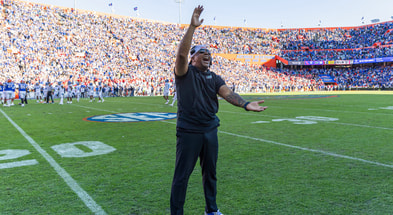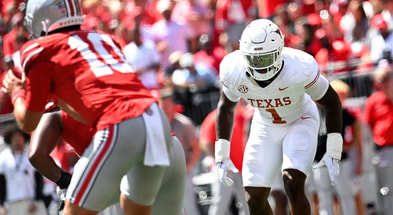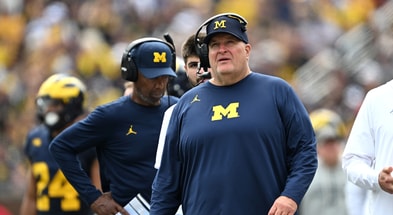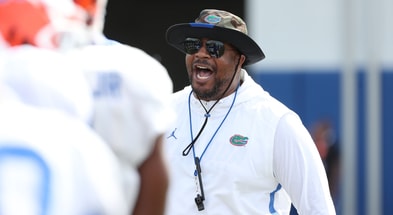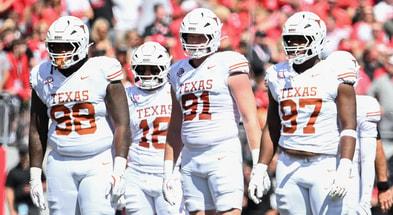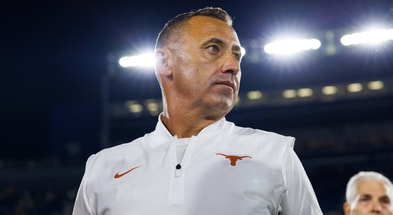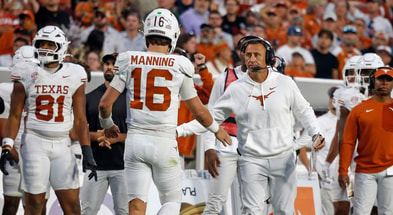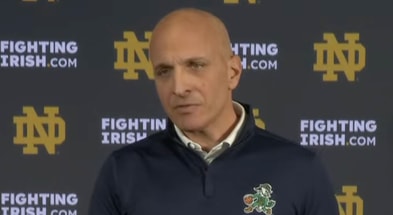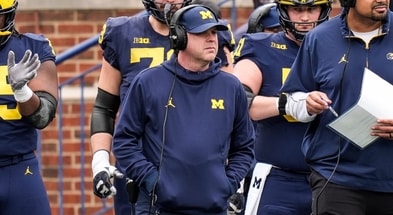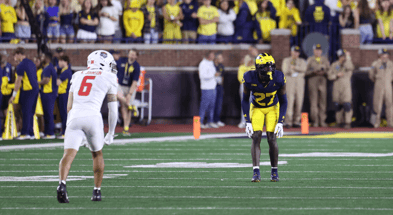Is it more advantageous to be a No. 5 seed in the 12-team playoff?
The College Football Playoff is moving to a five automatic bids plus seven at-large selections format. The top four seeds are now essentially reserved for the conference champions of the Southeastern Conference, Big 10, Big 12, and Atlantic Coast Conference for the next two years. The highest ranked conference champion from the Group of Five receives the fifth automatic bid, but they’re almost certain to be a No. 12 seed except in the rarest of occasions.
[Join Inside Texas and get ONE MONTH of Longhorn intel for just $1!]
Does that make the No. 5 seed the most advantageous position among the 12 teams that make the field?
Let’s look at recent history. This past year’s end-of-season CFP rankings were:
- Michigan
- Washington
- Texas
- Alabama
- Florida State
- Georgia
- Ohio State
- Oregon
- Missouri
- Penn State
- Ole Miss
- Oklahoma
If a 12-team 2023 playoff operated under a 6+6 format, Florida State would have made the field as the No. 5 seed. But they wouldn’t have faced the Oklahoma Sooners in the first round. OU would have been left out of the playoff for the No. 23 Liberty Flames, who were the highest ranked champion from the Group of Five after taking home the Conference USA title.
A undefeated Florida State the CFP selection committee deemed not worthy of inclusion in the four-team field because of Jordan Travis‘ injury would be a massive favorite over the Flames. And unless a Group of Five team improbably finishes ahead of a Power Four team in the final rankings, one of the best teams in a given season will face off against a champion from the American Athletic Conference, Conference USA, Mountain West, Mid-American Conference, or the Sun Belt.
The Power 4 team would likely be double-digit favorites, too.
There’s an advantage to playing against the massive underdog in the first round. In the 2023 example, Liberty would to head Tallahassee, Fla. to play in front of a Seminole crowd still likely incensed from not earning a first-round bye. Walking out of Doak Campbell Stadium with a victory would be the tallest of tasks for the Flames.
If the game were to go as expected, FSU would likely be able to rest many of its starters in the second half. They would have been able to get valuable reps for the backup quarterback ahead of a neutral site matchup with Alabama. Seminole morale would see a huge boost after a significant though not lawsuit-inducing snub.
Top 10
- 1Breaking
Heisman Trophy
Best player in CFB crowned
- 2Trending
Heisman Voting
Final vote totals released
- 3
Michigan Athletic Dept.
Full investigation commissioned
- 4Hot
Kenny Dillingham
Nearing extension with ASU
- 5
Michigan Coach Search
Three names to watch
Get the Daily On3 Newsletter in your inbox every morning
By clicking "Subscribe to Newsletter", I agree to On3's Privacy Notice, Terms, and use of my personal information described therein.
There is undoubtedly an advantage to the bye. The above hypothetical would provide the Tide with a week off from hits and the grind associated with preparing for a football game.
What’s the greater advantage: beating up on a C-USA team on home turf or waiting a week to get ready for a neutral site matchup against a team with positive momentum?
Now, upsets can and will happen on occasion. Look to 2022, when Tulane stormed back to defeat USC and Heisman winner Caleb Williams in the Cotton Bowl. But there’s more evidence of that being the exception and not the norm. Just look to 2021 when Alabama handled AAC champion Cincinnati 27-6 in the semifinal.
Incentivizing conference championships was a smart move from the creators of the 12-team playoff, though it does come with its fair share of drawbacks.
[Subscribe to the brand new Inside Texas YouTube channel!]
One of those is that it might be more advantageous for one team per year to play in the first round and make quick work of a G5 opponent than sit at home and wait for a quarterfinal matchup.



